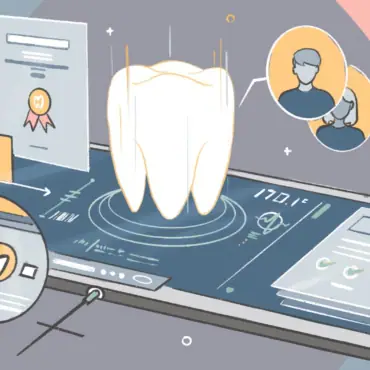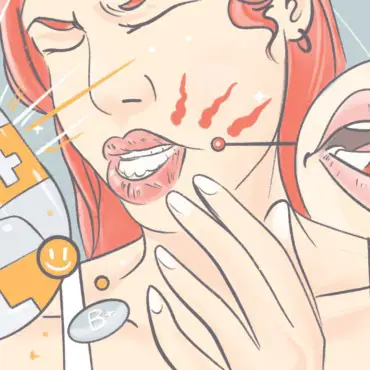Dental work can be expensive. And what makes it more expensive, is when you put off seeing your dentist, or even performing good, basic dental hygiene. But when you don’t even do the basics, dental procedures can get expensive real quick. For example, a simple amalgam filling can cost around $300 and one dental implant can cost up to $4,500!
Prices like those will leave you wondering how on Earth you’re going to pay for the procedures you need. Thankfully, we’ve got some suggestions. Let’s discuss!
Can dental work be covered by medical insurance?
What’s our big trick for saving money on dental costs? It isn’t anything that crazy. We simply recommend your dentist bill your medical insurance instead of your dental plan because some dental procedures can be covered by medical.
You might assume the only insurance covering you when you visit the dentist is your dental plan. However, medical insurance will cover some procedures, even though a dentist performs them and they are mostly dental in nature. After all, dentists are doctors too that have spent years refining medical experience in their chosen specialty.
There are specific rules about what is covered and what will be denied. If your dental work is needed because of a medical reason, it’s more likely your medical insurance will cover it.
For example, if you need to fix some teeth because you were banged in the face, your medical insurance may cover it since the work is needed as a result of an injury. Another common reason is when you need dental appliances or services to treat medical conditions, such as sleep apnea.
What’s the difference between dental insurance plans and medical insurance plans?
Understanding the difference between dental and medical insurance can be difficult. Knowing where one begins and the other end is confusing, to say the least. It might be simpler to say that any work that happens in a dental office should be covered by your dental benefits, but it doesn’t work that way. However, that’s a good thing for you.
Dental benefits and medical insurance are not the same thing and don’t quite work the same way. Dental benefits primarily cover preventative care, often up to 100%. They often come with a rather high deductible and there is usually a limit on annual spending.
Thus, if you want any work done that isn’t included in the preventative care package, you’ll need to fulfill your deductible first. If your deductible is $1,000, you’ll have to pay the first $1,000 for a procedure out-of-pocket. After that, your insurance will kick in. Keep in mind that basic dentist appointment costs such as copays usually help to fulfill this deductible as well.
Learn more about what procedures dental insurance covers with our Ultimate Guide to Dental Insurance
On the other end of things, dental insurance will often only pay up to a certain amount. For example, you might have a $3,000 yearly limit.
Medical insurance, on the other hand, is more useful as a safety net. There isn’t as much emphasis on preventive care, but rather it’s there to cover unexpected expenses from injuries and emergencies. You’re probably already aware that without insurance, most people wouldn’t be able to cover the high cost of medical help on the spot.
We reward you for going to your dental checkup!
Though your specific plan may have a deductible (and sometimes a high one) the spending limits are usually much higher than a dental plan. In most cases, there is plenty of room to cover the cost of your dental procedure.
Can I be reimbursed from medical insurance on dental work?
The short answer? Yes, your medical insurance may reimburse you for dental work. The hard part is knowing if they will in your specific situation or not. Even if the procedure you’re applying for might be covered for someone else, there’s no guarantee your medical insurance will pay your claim.
For example, if you lose or break a tooth because of an injury, it’s possible your medical insurance will cover it because it is a medical cause. However, if your troubles are purely dental in nature (such as losing a tooth because you didn’t care for your teeth well), the claim may be denied.
It also depends on the insurance plan you have. Insurance with better coverage will be more likely to pay your claim. Plus, remember that if your medical insurance has a high deductible, you’ll be responsible for that first.
In other words, while you can hope your medical insurance will cover a procedure, there is no guarantee and you may want to have a backup plan for those bills.
12 procedures medical insurance might cover:
By now you should have a basic understanding of the difference between dental benefits and medical insurance. Let’s look at some common dental procedures that can be billed to medical insurance companies.
1. Sleep apnea appliances
Sleep apnea is a medical condition characterized by the patient not being able to breathe properly at night, usually because the airway is being blocked off. This medical condition can often be treated by using an oral appliance to bring the jaw forward and maintain the airway open.
2. Surgical extractions
In some cases, tooth extractions will be covered. This is more likely if you are having multiple teeth removed at once and almost assured if the extractions are necessary because of an injury.
3. Wisdom teeth removal
Leaving wisdom teeth in your mouth that should be removed can cause health problems in some cases. On a limited case-by-case basis, medical insurance may cover this procedure.
4. TMJ night guards and appliances
The temporomandibular joint (TMJ) connects the jaw to the temporal bones in the skull. Problems with this joint can cause pain in the surrounding area as well as severe headaches that may be alleviated by TMJ dental devices.
5. Laser surgery when you have severe periodontal disease
Though not yet well understood, periodontal disease can have a systemic effect on your body and affect issues such as cardiovascular disease. As such, treatments for periodontal diseases, such as laser surgery, can be considered a medical issue.
6. CT scans
CT scans are used as a diagnostic tool for procedures such as implants or cavities. Sometimes, dental x-rays don’t offer the complete picture, and a CT scan can allow your dentist to get a closer look.
7. Dental implants
Missing teeth are more than just a cosmetic issue. Your jaw needs all your teeth to help properly support the structure of your face. There are also other health issues that may arise when you have missing teeth, prompting medical insurance to cover the cost.
8. Bone grafting
Was your bone loss caused by a medical reason such as trauma or cancer? Bone grafts to correct this are often eligible for coverage.
9. Frenectomy surgery
Some infants and children need tongue surgery to correct issues in the mouth. This is considered a medical procedure.
10. Congenital defects
If the root cause of your oral health issues is a congenital defect, health insurance may cover treatment.
11. Botox injections
You might be wondering if you read that right, but yes, sometimes Botox injections can be covered. However, they need to be for non-cosmetic reasons such as to treat bruxism and jaw pain.
12. Mucosititis and stomatititis
The effects of chemotherapy and similar treatments can ravage your entire body. Oral health problems related to these treatments may be covered.
Getting a little help with all this
Wondering how to know if your dental procedure might be covered by medical insurance? Your dentist’s office is an excellent resource. In fact, they’ll be the ones coding the procedure and billing your insurance company and the codes they use can have an impact on whether the claim is approved. Find a dentist who is willing to work with you on billing your medical insurance. It can make all the difference.
We reward you for going to your dental checkup!
However, don’t be upset with the dentist’s office if the claim is denied. After all, they’re doing their best to help you out and ensure your best dental health. They’ll make an educated guess about what your medical insurance is likely to cover, but they won’t always be right.
If coverage is denied, it’s possible your dental office will offer a payment plan to help you cover the cost of your dental work. They are 100% on your side and will do what they can to help ease the burden.
Save money on dental procedures the easy way
The good news is that you don’t have to learn all the ins and outs of medical billing to ensure you can save money on your dental visit. Your dentist’s office will give you their best guess as to if your procedure will be covered. They’ll also handle all the coding and filing of the paperwork. All you have to do is cross your fingers and hope for the best.
Again, your dentist’s office can’t assure you that your claim will be paid. However, they’ve already seen many people who needed the same procedures and have an idea of what your insurance will pay.
Looking for an awesome dentist near you? If you don’t already have one in your area, this is the time to hire one. Don’t shy away too quickly, there’s a great new way to find a perfect fit. Find a dentist through our platform here at Opencare today and level up your oral wellness!








